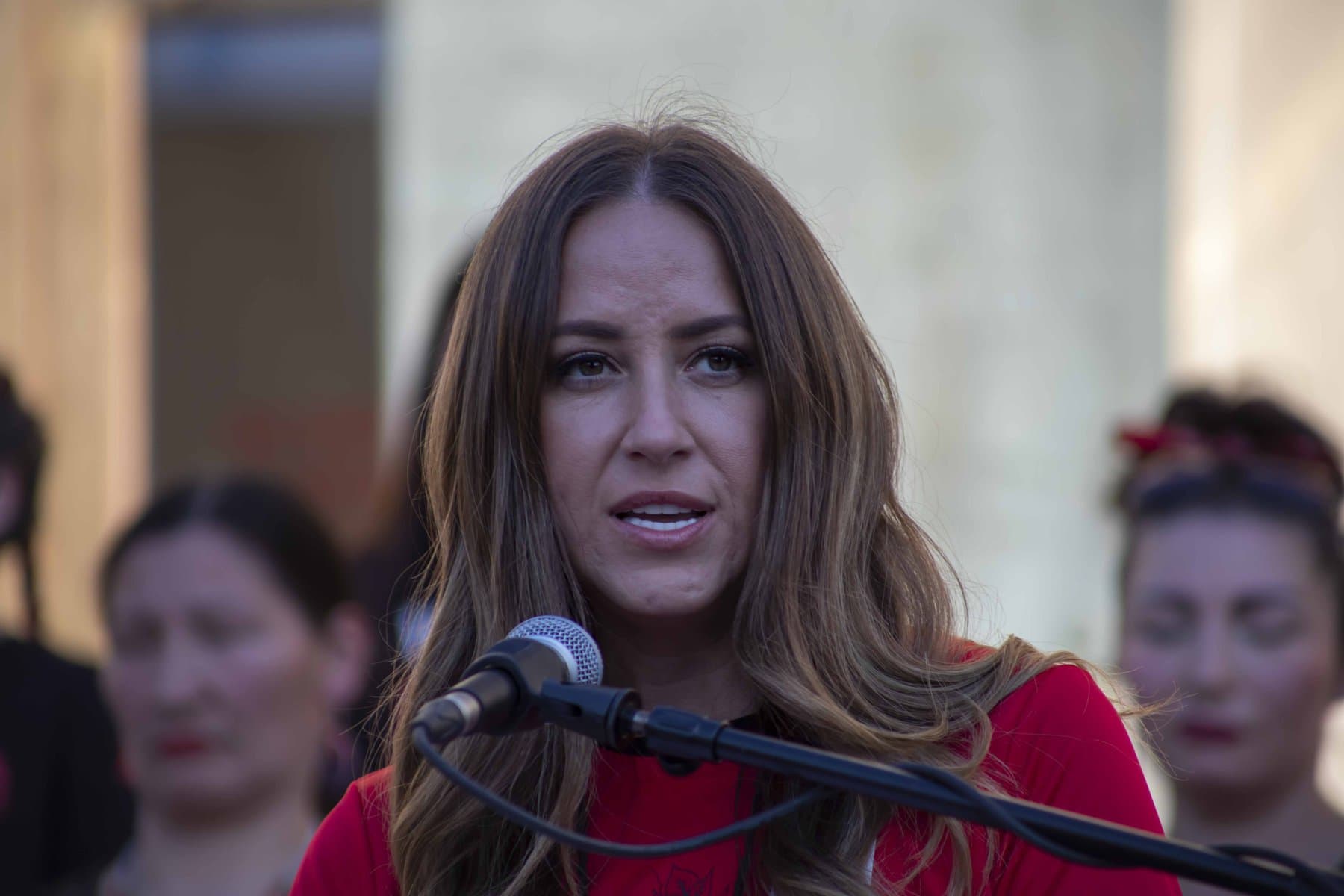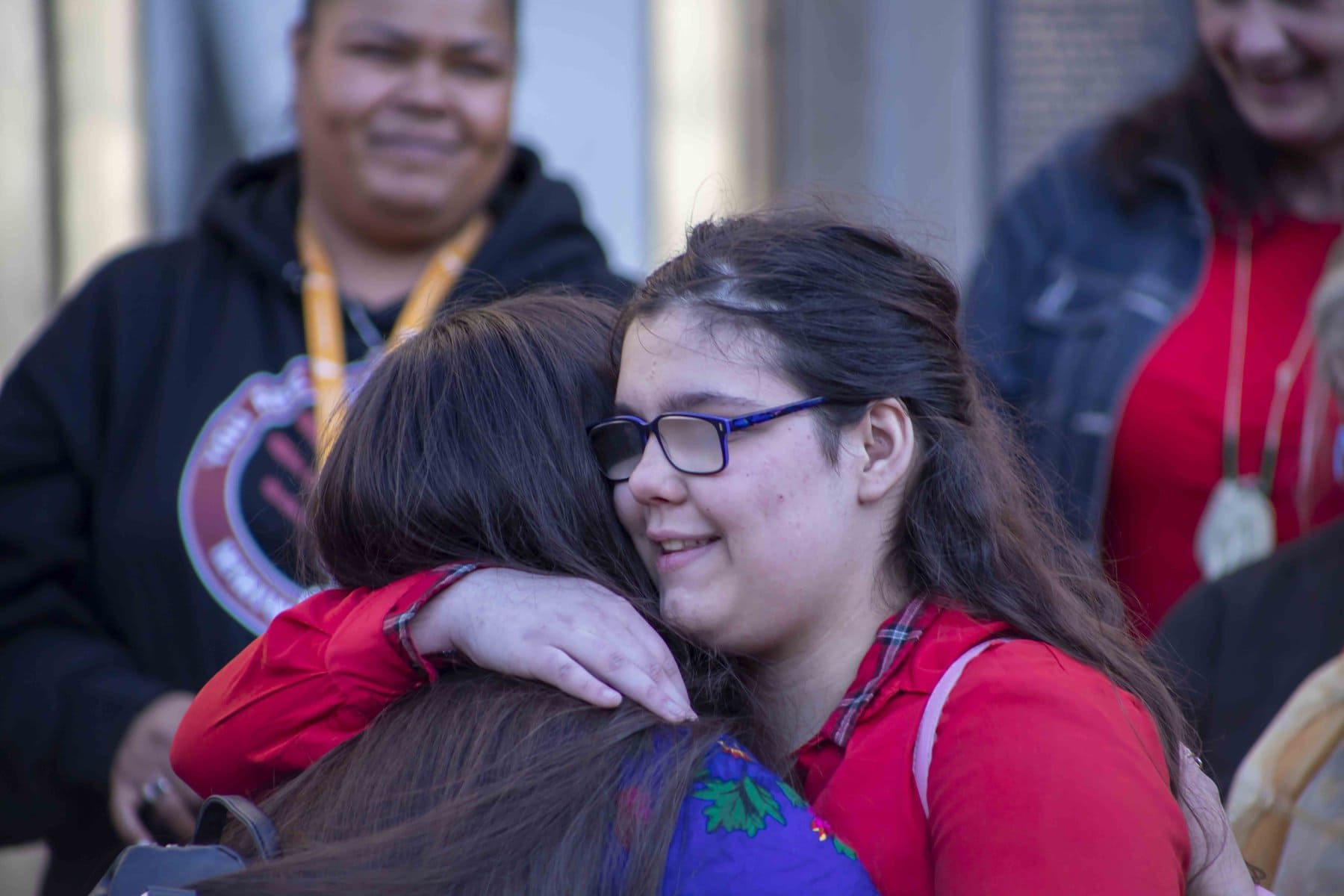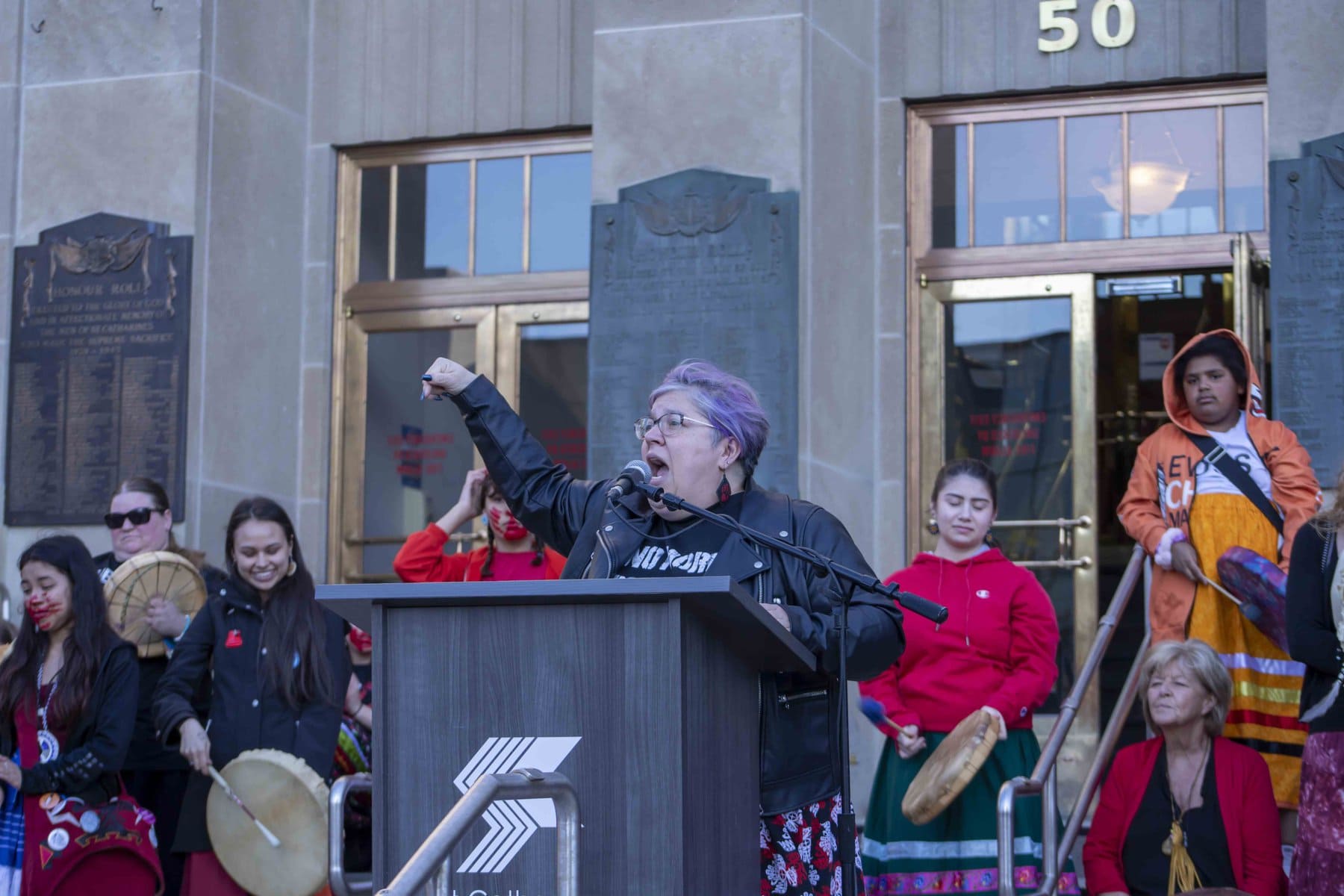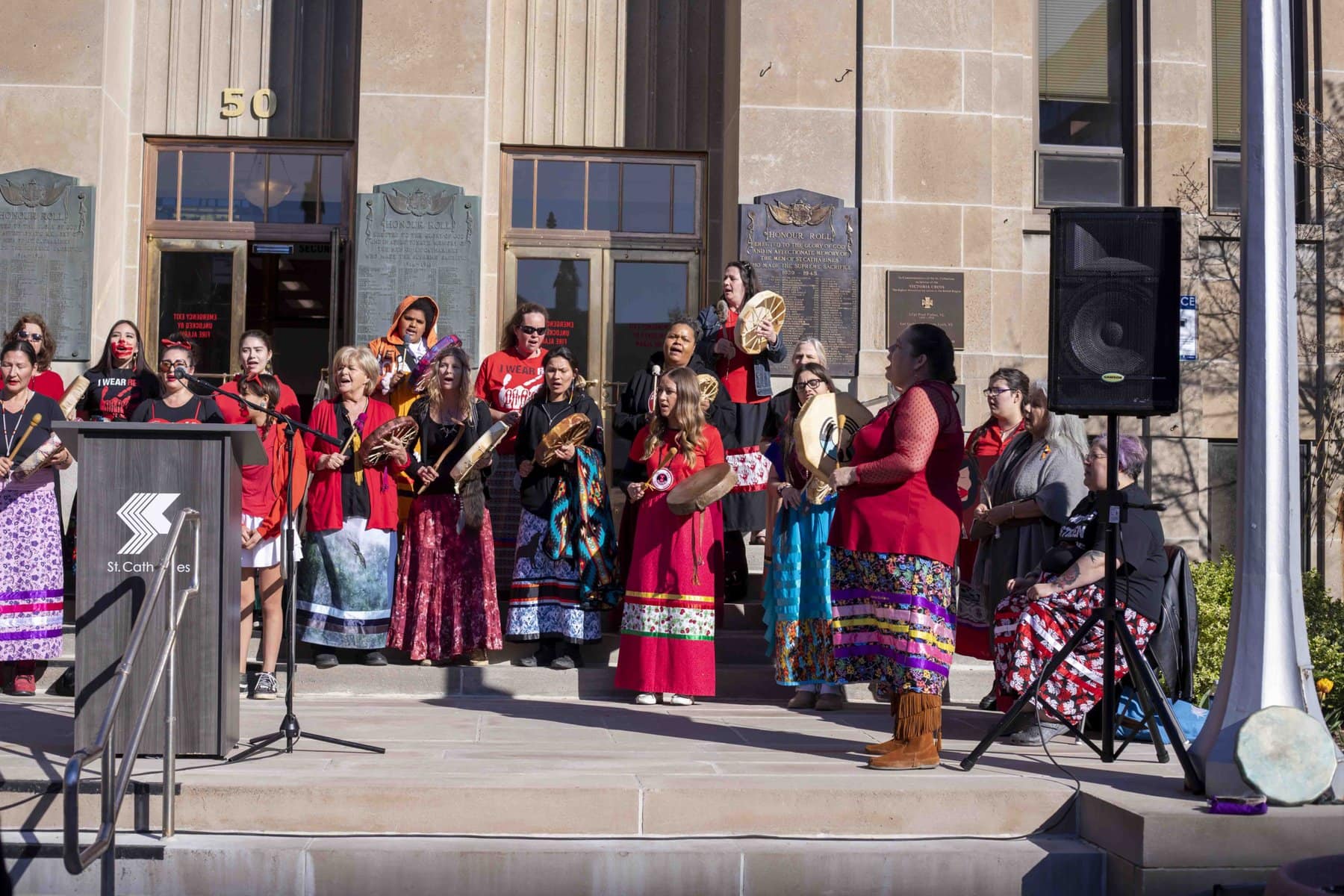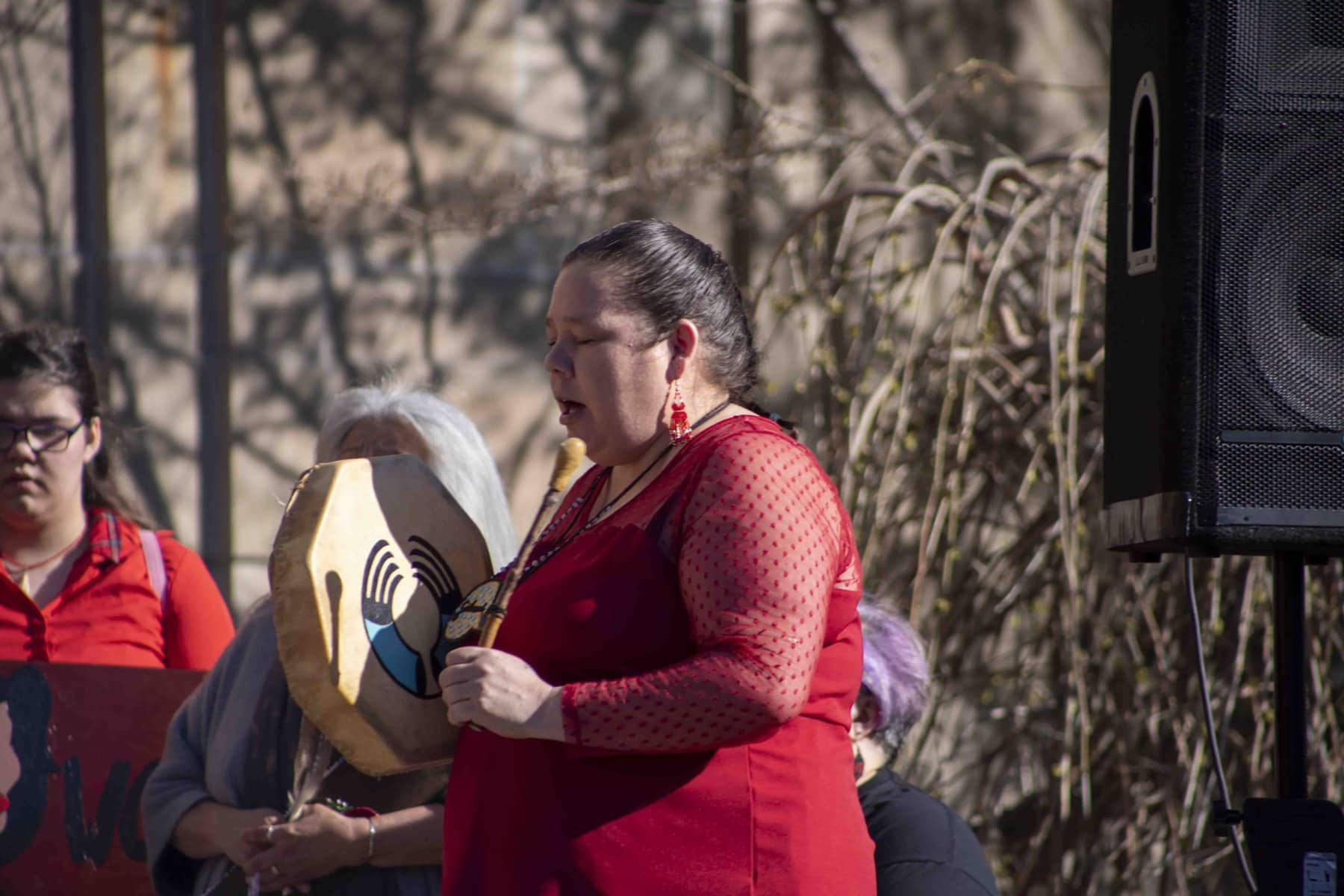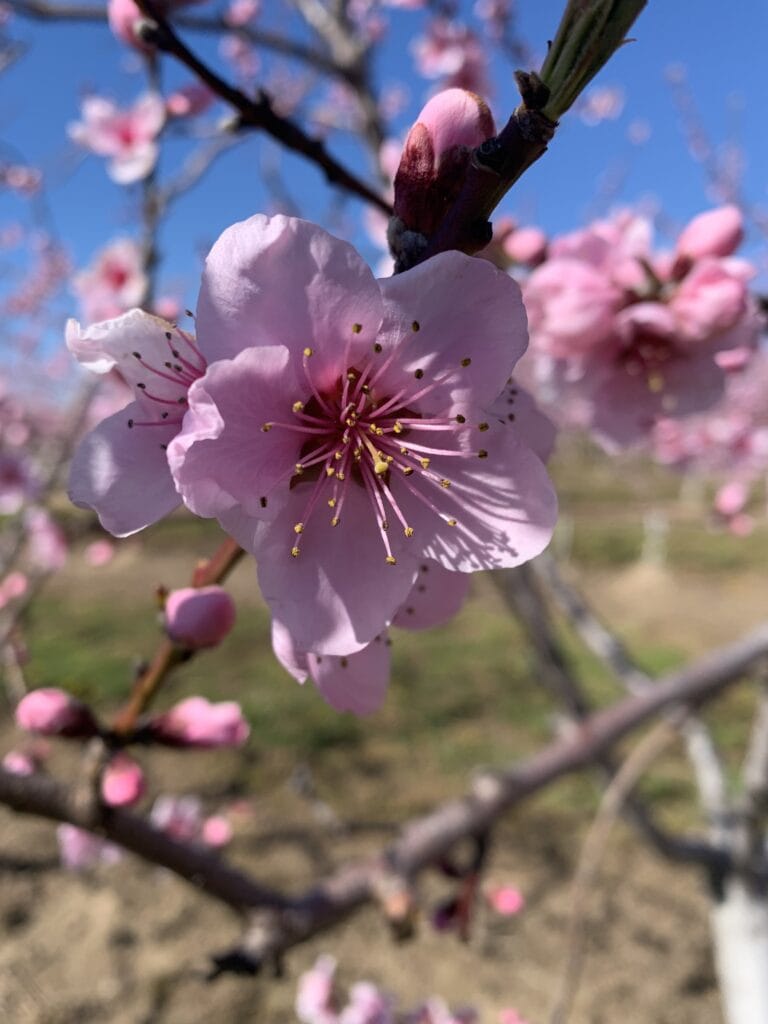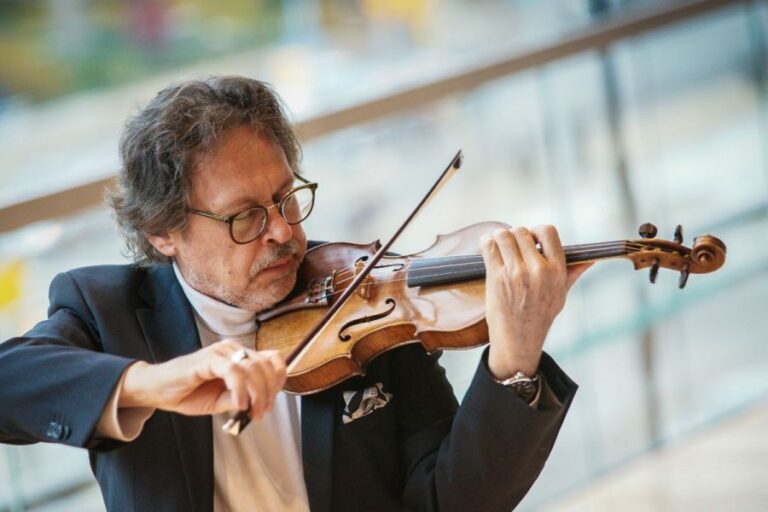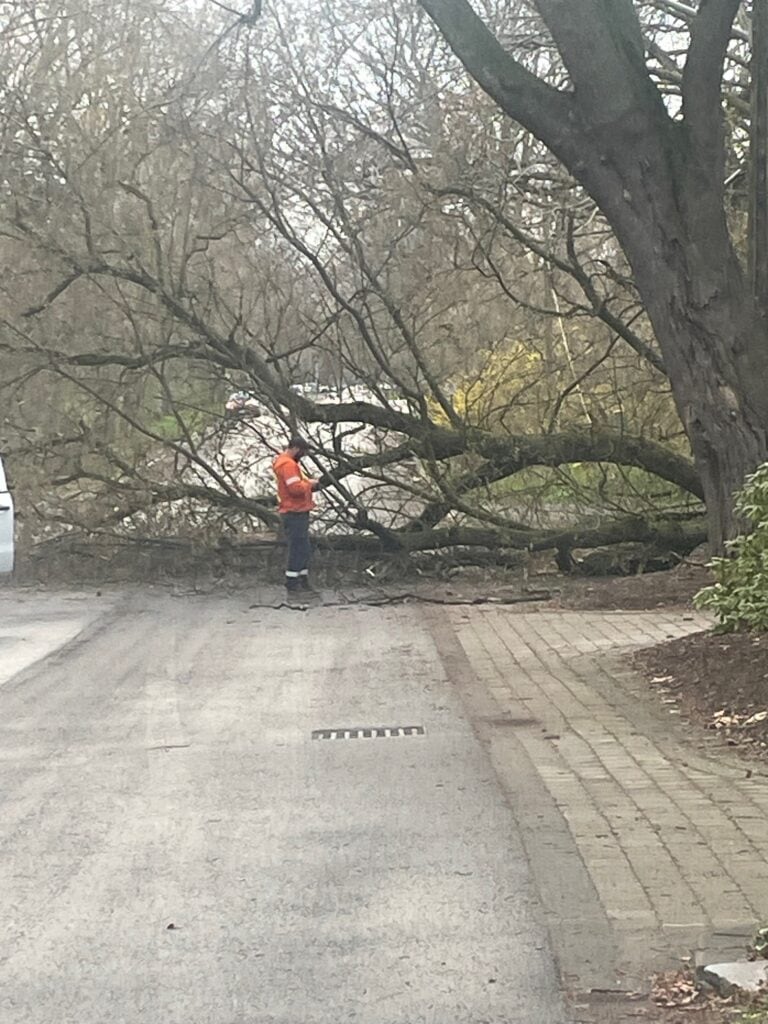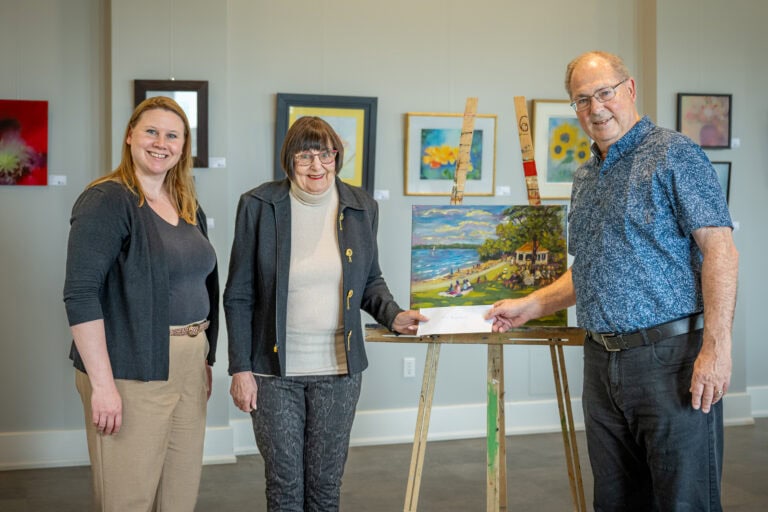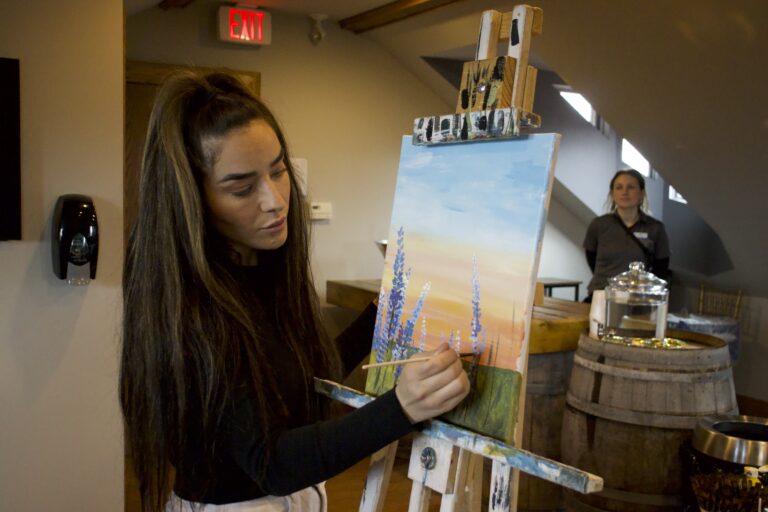Indigenous advocates are pleading for the state to treat violence against Indigenous women seriously – before it gets passed to their children.
Hundreds walked together through downtown St. Catharines to rally support for Indigenous women and girls Friday afternoon.
They were led by Fallon Farinacci, a board member for the Niagara Regional Native Centre based in Niagara-on-the-Lake.
“It’s very important to continue to call on our government to do more to protect Indigenous lives,” she told a crowd of more than 300 people at St. Catharines’ city hall before the walk began.
The national inquiry into missing and murdered Indigenous women and girls, which was completed in 2019, found Indigenous women and girls are murdered at 12 times the rate of their white counterparts.
Similarly, in 2022 Statistics Canada found more than 60 per cent of Indigenous women report being physically or sexually assaulted in their lifetimes.
Walks like this take place in Canada every year on May 5 as part of Red Dress Day, which raise awareness of the issue.
Since the day was first observed in 2010, the red dress has become a symbol of the lives lost over the years.
Farinacci told the crowd while she could “stand up here all day” to talk about why Red Dress Day is important, she instead wants to amplify the voices of young people.
“They’re the future. They are the ones that are going to be living this, so it must end now,” Farinacci said.
Six young people spoke to the crowd about their fears for the future.
Kayanna Saylor, a 17-year-old who goes to high school in St. Catharines, said she narrowly escaped a kidnapping when she was 14.
“I could have been one of those red dresses,” she said.
Still, Saylor said the issue is bigger than her.
“This is about the people who have died,” she said, “and it’s about the people who are missing.”
The federal government passed a motion on May 2 to declare violence against Indigenous women and girls a nationwide emergency.
But the people closest to the issue have been talking about it for much longer and say they are tired of waiting.
“This came far too late. And it only came to be because of family members, survivors, advocates and community pressuring them to do so,” Farinacci said to the crowd.
The issue hits close to home for Farinacci, who first shared her story with The Lake Report in September 2021.
Her parents were murdered when she was nine after a friend of the family who had become obsessed with her mother broke in one night and killed both parents.
Police responded without urgency even though the killer had a record of violence and despite the family having a restraining order against him, Farinacci said.
During the walk, Farinacci said she still encounters racism and ignorance in her activism.
While she was out putting up signs to promote the walk she was harassed by a stranger who was tired of hearing about Indigenous issues.
“I told her that it was her white privilege speaking. And I found her to be disgusting,” Farinacci said.
She said she’s used to seeing ignorant comments on social media but that she wasn’t expecting it to “hurt as deeply as it did.”
Farinacci wasn’t the only one to be harassed leading up to the walk.
Sabrina Shawana, leader of the Strongwater Singers, came to the event that evening with dampened spirits after a stranger shouted racial slurs at her while she was drumming outside the St. Catharines hospital.
Dealing with this treatment, Shawana said, is hard.
“We get out into the world and people don’t appreciate and love us the way we appreciate and love ourselves,” she said.
She hopes it will be easier for her daughters.
Brock University professor Robyn Bourgeois also spoke to the crowd. A Cree woman whose family comes from Treaty Eight territory, she focuses on violence against Indigenous women and girls in her academic work.
However, she said she’s sick of studying the issue and is ready for a solution.
“I don’t want to talk about it anymore. Get on it. Our lives are at stake,” she told the crowd.
At 18 years old, Bourgeois says she was sex trafficked while living in Vancouver.
“I went from graduating at the top of my class 1996, top all-round graduate, to being on the streets of the Downtown Eastside in a matter of months,” she said.
While she survived, many did not.
Looking around at the youth who had come to speak, Bourgeois said she was sad.
“I don’t think they should have to be doing this,” she said, adding, “We have to do the work now. So our kids can just be.”
Instead, they are here with their parents, “fighting for justice,” said Bourgeois.
Farinacci said she thinks the answer to ignorance is education.
She recalls Indigenous issues like residential schools and violence against Indigenous women, girls and two-spirit people were not widely taught in school when she was growing up.
“I was not aware of my own story,” she said.
“I believe the system works so well, that when you’re in it, you’re not even aware that you’re in it,” she added.
Farinacci said she wants there to be “real truth” in the classroom about what happens to women in the Indigenous community.
At the end of her speech, Bourgeois called on the regional government to declare a state of emergency for Indigenous women, girls, two-spirit, and LGBT people.
Farinacci said she would be interested in being part of an effort to make that a reality in Niagara.



